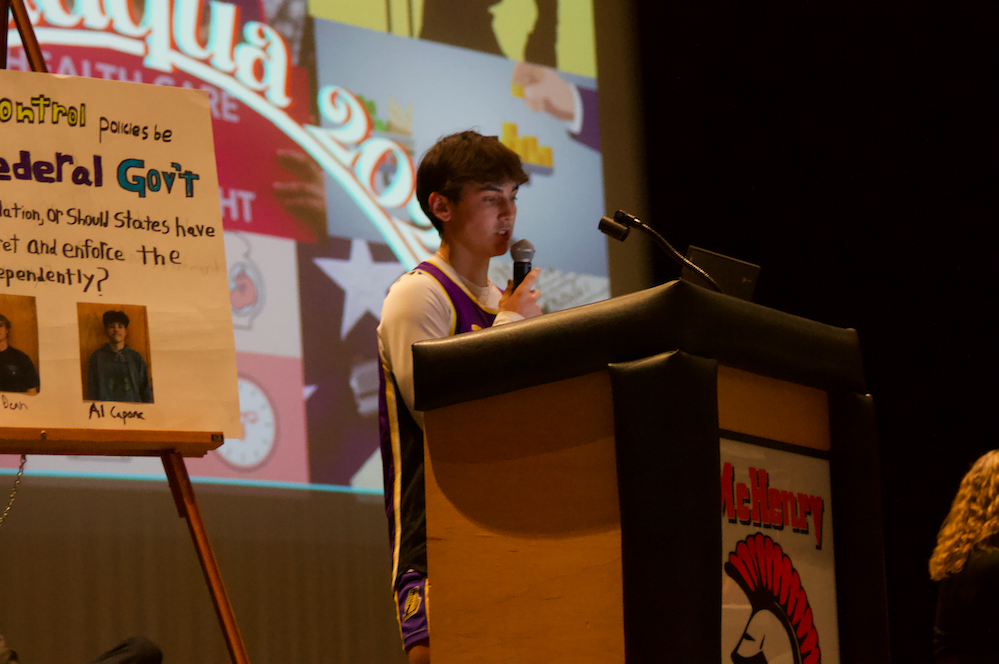Dressed as their character for Chautauqua, junior Onyx Haak enters the Upper Campus auditorium. They take their seat in the dimly lit space, anticipating the speeches and skits they will see today. The first bell of the day has rung, Chautauqua has begun.
Chautauqua is an event held by the junior American Studies classes at MCHS. American Studies is a course that combines History and English to engage students and further their education through various projects and presentations. This main presentation brings in several incoming juniors to the class.
“I decided to join American Studies,” said junior Brooklyn Hauber, “because I heard about Chautauqua and I wanted to participate.”
“Chautauqua is a celebration that we have every November,” says English teacher Brittany Probst. “It involves students acting as different characters coming together in a formal setting to discuss different social/political issues from different perspectives.”
Chautauqua is one of the class’s main projects. Working for the whole first semester, students pick a celebrity or historical figure and do research in order to “become them.”
“It’s a way to talk about current day issues,” said social studies teacher Cody Freund, “but also bringing in historical figures, to get students to learn about people of the past, and then how that’s relevant today.”
During this time, students give speeches on various topics against other students with an opposing view. They then answer questions about them, and the audience votes. In between speeches, students have the opportunity to perform different skits as their character. Though this day-long event is meant to be fun, lots of work went into it.
“There’s a lot of assessments,” said Hauber. “It’s very time consuming but you get to know your character well, It did help in the end.”
Students spend their school day in the auditorium for this project. They get points for both participating in the speeches and answering questions. The format is made so that every student either on stage or in the audience gets the chance to perform.
“We do Chautauqua,” Probst says, “as an exercise to get the students thinking from other perspectives about what’s happening in society and the impact that it has on different people.”
Even though it can be hard work, students feel the rewards and benefits they get from their efforts put into the project, especially because they have a real audience to perform in front of. Other social science classes often go to see the performances during their class period.
“I’m excited to see people’s skits and all the stuff in between,” said Haak.




